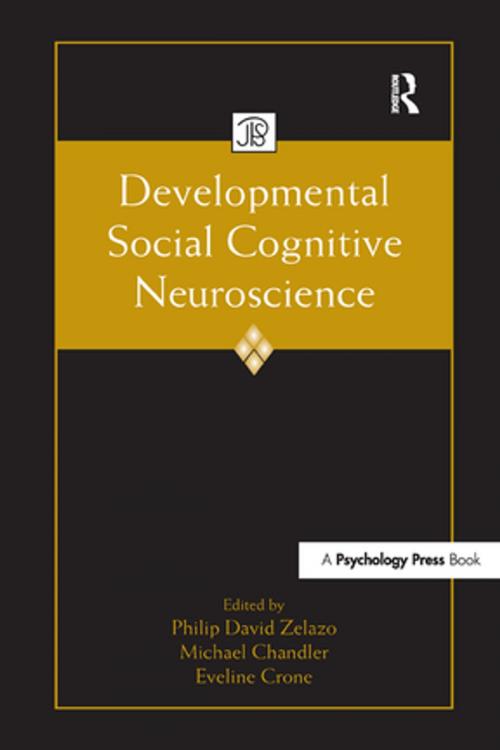Developmental Social Cognitive Neuroscience
Nonfiction, Health & Well Being, Psychology, Child & Adolescent, Child Development, Cognitive Psychology| Author: | ISBN: | 9781136647987 | |
| Publisher: | Taylor and Francis | Publication: | July 22, 2016 |
| Imprint: | Psychology Press | Language: | English |
| Author: | |
| ISBN: | 9781136647987 |
| Publisher: | Taylor and Francis |
| Publication: | July 22, 2016 |
| Imprint: | Psychology Press |
| Language: | English |
This volume in the JPS Series is intended to help crystallize the emergence of a new field, "Developmental Social Cognitive Neuroscience," aimed at elucidating the neural correlates of the development of socio-emotional experience and behavior. No one any longer doubts that infants are born with a biologically based head start in accomplishing their important life tasks––genetic resources, if you will, that are exploited differently in different contexts. Nevertheless, it is also true that socially relevant neural functions develop slowly during childhood and that this development is owed to complex interactions among genes, social and cultural environments, and children’s own behavior. A key challenge lies in finding appropriate ways of describing these complex interactions and the way in which they unfold in real developmental time. This is the challenge that motivates research in developmental social cognitive neuroscience.
The chapters in this book highlight the latest and best research in this emerging field, and they cover a range of topics, including the typical and atypical development of imitation, impulsivity, novelty seeking, risk taking, self and social awareness, emotion regulation, moral reasoning, and executive function. Also addressed are the potential limitations of a neuroscientific approach to the development of social cognition.
Intended for researchers and advanced students in neuroscience and developmental, cognitive, and social psychology, this book is appropriate for graduate seminars and upper-level undergraduate courses on social cognitive neuroscience, developmental neuroscience, social development, and cognitive development.
This volume in the JPS Series is intended to help crystallize the emergence of a new field, "Developmental Social Cognitive Neuroscience," aimed at elucidating the neural correlates of the development of socio-emotional experience and behavior. No one any longer doubts that infants are born with a biologically based head start in accomplishing their important life tasks––genetic resources, if you will, that are exploited differently in different contexts. Nevertheless, it is also true that socially relevant neural functions develop slowly during childhood and that this development is owed to complex interactions among genes, social and cultural environments, and children’s own behavior. A key challenge lies in finding appropriate ways of describing these complex interactions and the way in which they unfold in real developmental time. This is the challenge that motivates research in developmental social cognitive neuroscience.
The chapters in this book highlight the latest and best research in this emerging field, and they cover a range of topics, including the typical and atypical development of imitation, impulsivity, novelty seeking, risk taking, self and social awareness, emotion regulation, moral reasoning, and executive function. Also addressed are the potential limitations of a neuroscientific approach to the development of social cognition.
Intended for researchers and advanced students in neuroscience and developmental, cognitive, and social psychology, this book is appropriate for graduate seminars and upper-level undergraduate courses on social cognitive neuroscience, developmental neuroscience, social development, and cognitive development.















